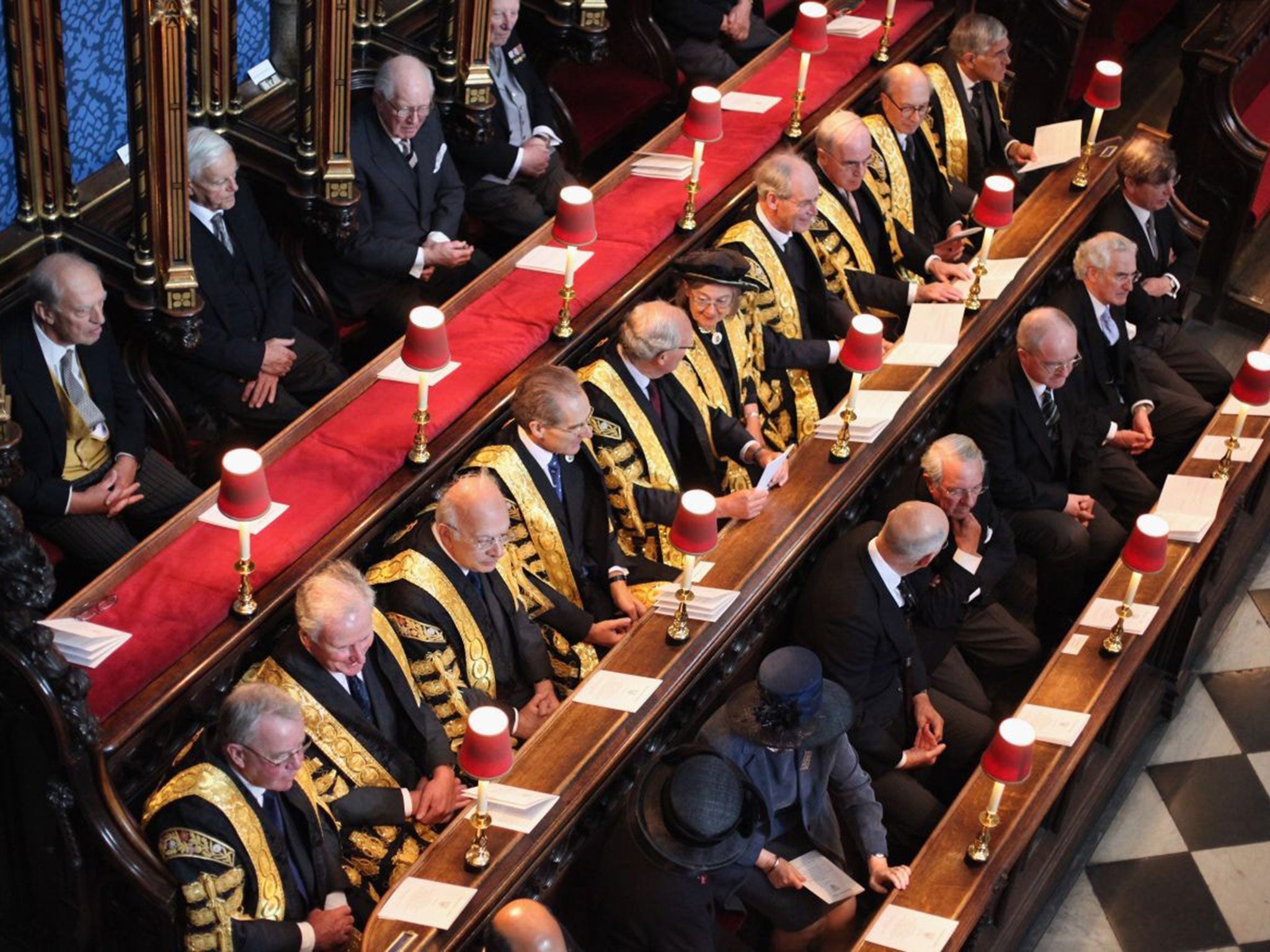'More women judges will improve law': Britain's only female Supreme Court judge calls for more diversity
Baroness Hale claims male colleagues have concerns about changing the application and hiring process

Britain's only female Supreme Court judge says there needs to be more gender equality shown across Britain's legal system and that by appointing more female judges the quality of justice could be greatly improved.
Baroness Hale called for greater positive discrimination in the law, saying: "There has only ever been one female Head of Division and in the Supreme Court there is still only me. It speaks volumes."
In a speech given to female members of the judiciary, Lady Hale said: "I, too, used to be sceptical about the argument that women judges were bound to make a difference, because women are as different from one another as men, and we should not be expected to look at things from a particularly female point of view, whatever that might be. But I have come to agree with those great women judges who think that sometimes, on occasions, we may make a difference."
Pointedly, the judge said that "male Supreme Court justices mostly fit the stereotypical pattern of boys' boarding school, Oxbridge college and the Inns of Court", and criticised Parliament for failing to implement fairer appointment within the judiciary. "The Joint Committee on Human Rights actually proposed that there should be a duty to appoint a judiciary reflective of the community it serves. But many in Parliament thought that merit and diversity are competing rather than complementary values."
Lady Hale, the UK's most senior female judge, stated that although equality is widely accepted as necessary for a fair legal system, some of her male Supreme Court colleagues have concerns about changing the application and hiring process – Lord Sumption, for one, claiming that positive discrimination would "dilute the quality of the bench" and put talented men and women off applying. She insisted that she rejected these arguments, stating that "diverse courts are better courts".
According to Lady Hale, there is a feeling among male judges that "men would not apply if they thought that they would be discriminated against; and the top women would not apply because they want to be appointed on merit alone and not because of their gender". She added: "I tend to think that the judiciary would be better off without prima donnas who might not apply for such reasons."
Currently, only 11.4 per cent of Court of Appeal judges in England and Wales are women, despite the average gender split for the rest of Europe sitting at a ratio of 52:48 (men to women). In 2010, England and Wales came fourth from the bottom in terms of equal gender representation, followed only by Azerbaijan, Scotland and Armenia.
While acknowledging Britain's judiciary is admired and respected worldwide, Lady Hale said the British system "was out of step with the rest of the world". Speaking on Europe in general, she said: "The gender balance gets worse the higher the court... The Russian oligarchs want to litigate here because of [judges'] intelligence, their industry, their independence, their integrity and their incorruptibility. Could this be because of the kind of background the judges have? Or could it be because they are better-paid than almost any judiciary in Europe?"
Lady Hale has repeatedly highlighted gender imbalance since being appointed in 1994. In her speech she also touched upon the subject of privilege, noting that all but two of the Supreme Court judges went to fee-paying schools, and that all but two had a degree from Oxford or Cambridge, herself included. She said: "If the people in charge of the justice system are overwhelmingly from one section of society, then the justice system does not reflect the very values it is there to uphold.
"In a democracy governed by the people and not by an absolute monarch or even an aristocratic ruling class, the judiciary should reflect the whole community, not just a small section of it."
Lady Hale said that men in power "cannot be blamed for such good fortune. However great your initial advantages in life, you have to have the brains, the energy, the determination and the good luck to make the most of them".
She advocated wider recruitment to the legal profession; the rejection of traditional stereotypes and recruiting people based on "legal ability, personal qualities and potential, rather than current experience". She insists upon "actively encouraging and supporting able but unusual candidates to apply" and "creating a proper judicial career structure".
"What a person can 'bring to the mix' is an important component of his or her merit, at least in a collegiate court. Everyone brings their own 'inarticulate premises' to the business of making the difficult choices inevitably involved in judging. I take the view that 'difference' is important in judging and that gender diversity, along with many other dimensions of diversity, is a good, indeed a necessary, thing."
Join our commenting forum
Join thought-provoking conversations, follow other Independent readers and see their replies
Comments